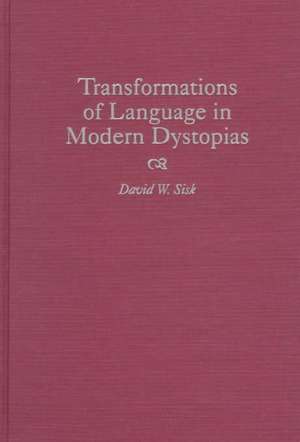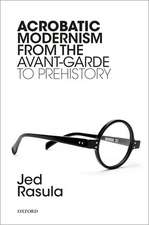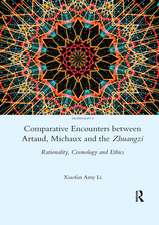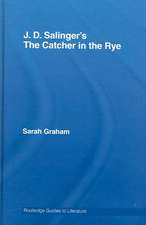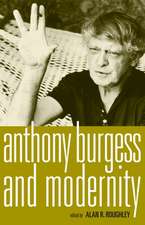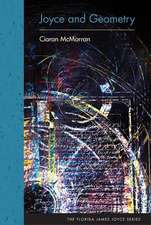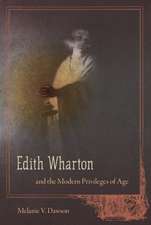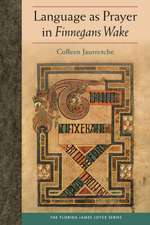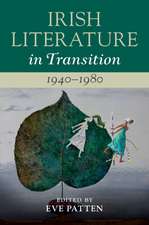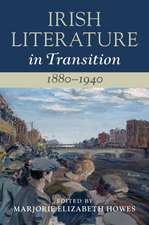Transformations of Language in Modern Dystopias: Contributions to the Study of Science Fiction and Fantasy
Autor David W. Sisken Limba Engleză Hardback – 29 dec 1997 – vârsta până la 17 ani
Din seria Contributions to the Study of Science Fiction and Fantasy
- 19%
 Preț: 459.84 lei
Preț: 459.84 lei - 28%
 Preț: 363.38 lei
Preț: 363.38 lei - 24%
 Preț: 461.87 lei
Preț: 461.87 lei - 38%
 Preț: 437.40 lei
Preț: 437.40 lei - 38%
 Preț: 440.53 lei
Preț: 440.53 lei - 28%
 Preț: 437.40 lei
Preț: 437.40 lei - 34%
 Preț: 318.21 lei
Preț: 318.21 lei - 28%
 Preț: 437.84 lei
Preț: 437.84 lei - 24%
 Preț: 462.87 lei
Preț: 462.87 lei - 24%
 Preț: 460.68 lei
Preț: 460.68 lei - 27%
 Preț: 345.74 lei
Preț: 345.74 lei - 28%
 Preț: 344.05 lei
Preț: 344.05 lei - 27%
 Preț: 345.42 lei
Preț: 345.42 lei - 28%
 Preț: 462.12 lei
Preț: 462.12 lei - 27%
 Preț: 439.09 lei
Preț: 439.09 lei - 38%
 Preț: 438.00 lei
Preț: 438.00 lei - 24%
 Preț: 462.20 lei
Preț: 462.20 lei - 38%
 Preț: 437.47 lei
Preț: 437.47 lei - 24%
 Preț: 366.92 lei
Preț: 366.92 lei - 28%
 Preț: 435.65 lei
Preț: 435.65 lei - 35%
 Preț: 460.60 lei
Preț: 460.60 lei - 27%
 Preț: 345.15 lei
Preț: 345.15 lei - 27%
 Preț: 439.51 lei
Preț: 439.51 lei - 24%
 Preț: 460.76 lei
Preț: 460.76 lei - 27%
 Preț: 345.30 lei
Preț: 345.30 lei - 38%
 Preț: 345.67 lei
Preț: 345.67 lei - 28%
 Preț: 434.53 lei
Preț: 434.53 lei - 28%
 Preț: 461.43 lei
Preț: 461.43 lei - 24%
 Preț: 461.00 lei
Preț: 461.00 lei - 28%
 Preț: 438.07 lei
Preț: 438.07 lei - 28%
 Preț: 436.47 lei
Preț: 436.47 lei - 28%
 Preț: 436.40 lei
Preț: 436.40 lei - 28%
 Preț: 412.21 lei
Preț: 412.21 lei - 38%
 Preț: 440.20 lei
Preț: 440.20 lei - 28%
 Preț: 435.72 lei
Preț: 435.72 lei - 28%
 Preț: 362.37 lei
Preț: 362.37 lei - 28%
 Preț: 437.67 lei
Preț: 437.67 lei - 28%
 Preț: 461.69 lei
Preț: 461.69 lei - 28%
 Preț: 435.72 lei
Preț: 435.72 lei - 38%
 Preț: 438.24 lei
Preț: 438.24 lei - 28%
 Preț: 436.57 lei
Preț: 436.57 lei - 24%
 Preț: 462.03 lei
Preț: 462.03 lei - 28%
 Preț: 344.63 lei
Preț: 344.63 lei - 30%
 Preț: 593.40 lei
Preț: 593.40 lei - 37%
 Preț: 579.52 lei
Preț: 579.52 lei - 28%
 Preț: 436.57 lei
Preț: 436.57 lei - 28%
 Preț: 459.84 lei
Preț: 459.84 lei - 24%
 Preț: 459.41 lei
Preț: 459.41 lei - 35%
 Preț: 363.22 lei
Preț: 363.22 lei
Preț: 568.40 lei
Preț vechi: 815.72 lei
-30% Nou
Puncte Express: 853
Preț estimativ în valută:
108.80€ • 118.22$ • 91.45£
108.80€ • 118.22$ • 91.45£
Carte tipărită la comandă
Livrare economică 21 aprilie-05 mai
Preluare comenzi: 021 569.72.76
Specificații
ISBN-13: 9780313304118
ISBN-10: 0313304114
Pagini: 224
Dimensiuni: 156 x 235 x 21 mm
Greutate: 0.48 kg
Ediția:New.
Editura: Bloomsbury Publishing
Colecția Praeger
Seria Contributions to the Study of Science Fiction and Fantasy
Locul publicării:New York, United States
ISBN-10: 0313304114
Pagini: 224
Dimensiuni: 156 x 235 x 21 mm
Greutate: 0.48 kg
Ediția:New.
Editura: Bloomsbury Publishing
Colecția Praeger
Seria Contributions to the Study of Science Fiction and Fantasy
Locul publicării:New York, United States
Notă biografică
DAVID W. SISK is Associate Director of Computing and Information Technology at Macalester College./e He received his Ph.D. in English from the University of North Carolina-Chapel Hill, and his scholarly interests include film, modern drama, and Southern literature.
Cuprins
PrefaceIntroduction to the Language of Dystopia"Plus 'Parfaite' et Moins Libre""It's a Beautiful Thing, the Destruction of Words""Milk with Knives in it"Newspeak, Nadsat and the Evolving Nature of Dystopian Language(s)Language and the Feminist Dystopia"You Never Know Where it Begun Realy"Apprehension ex nihilo: Claiming Mastery Over the WordBibliographyIndex
